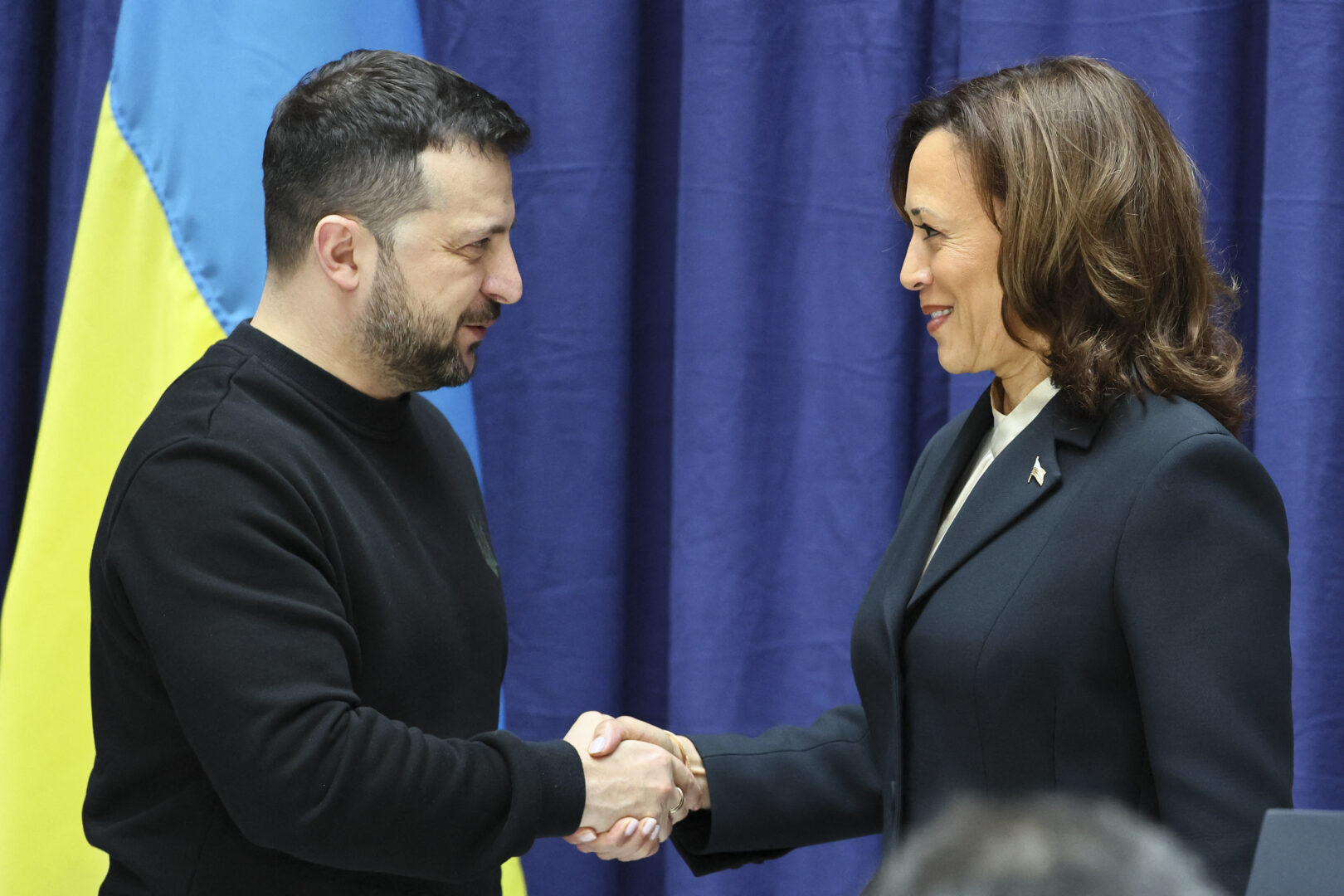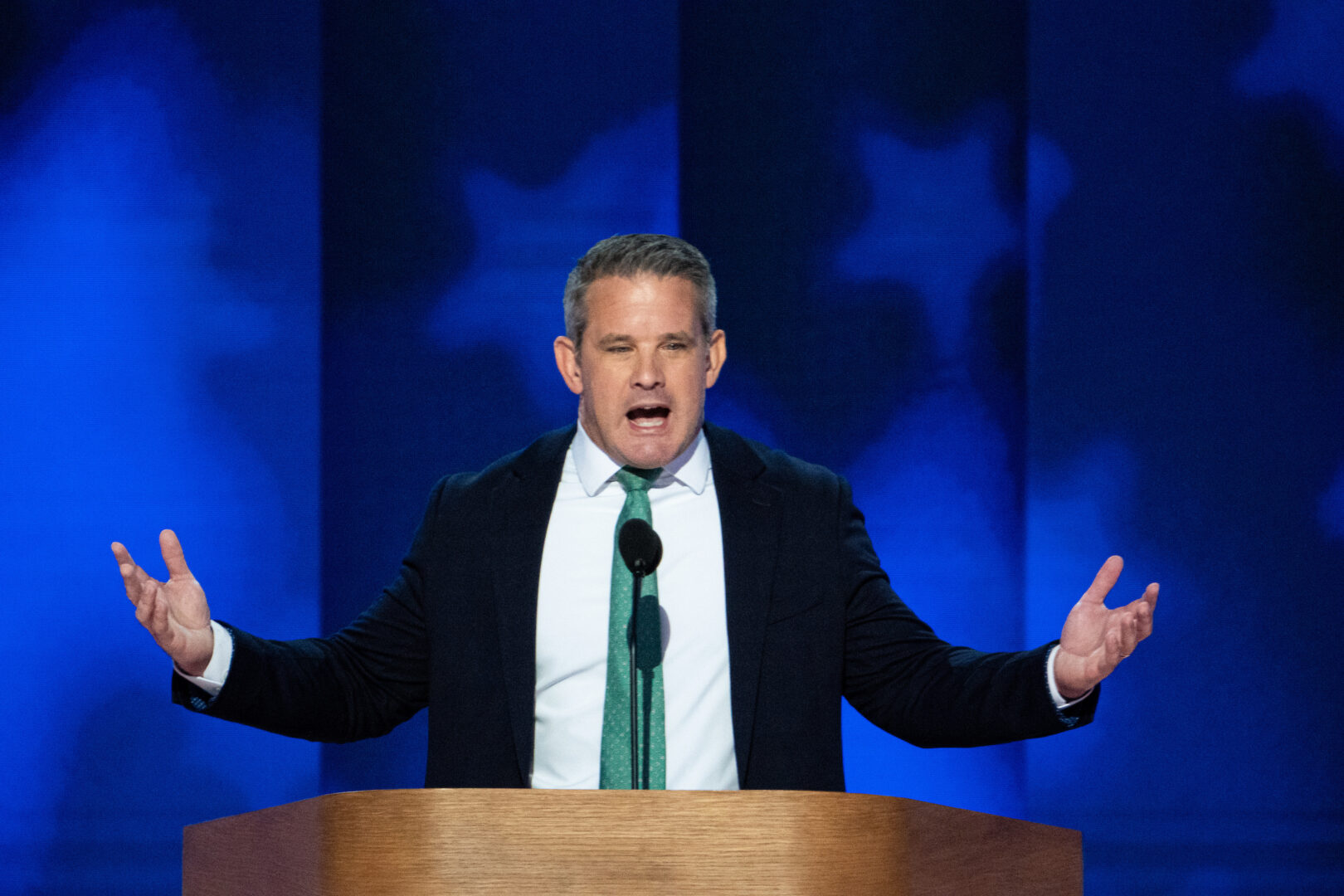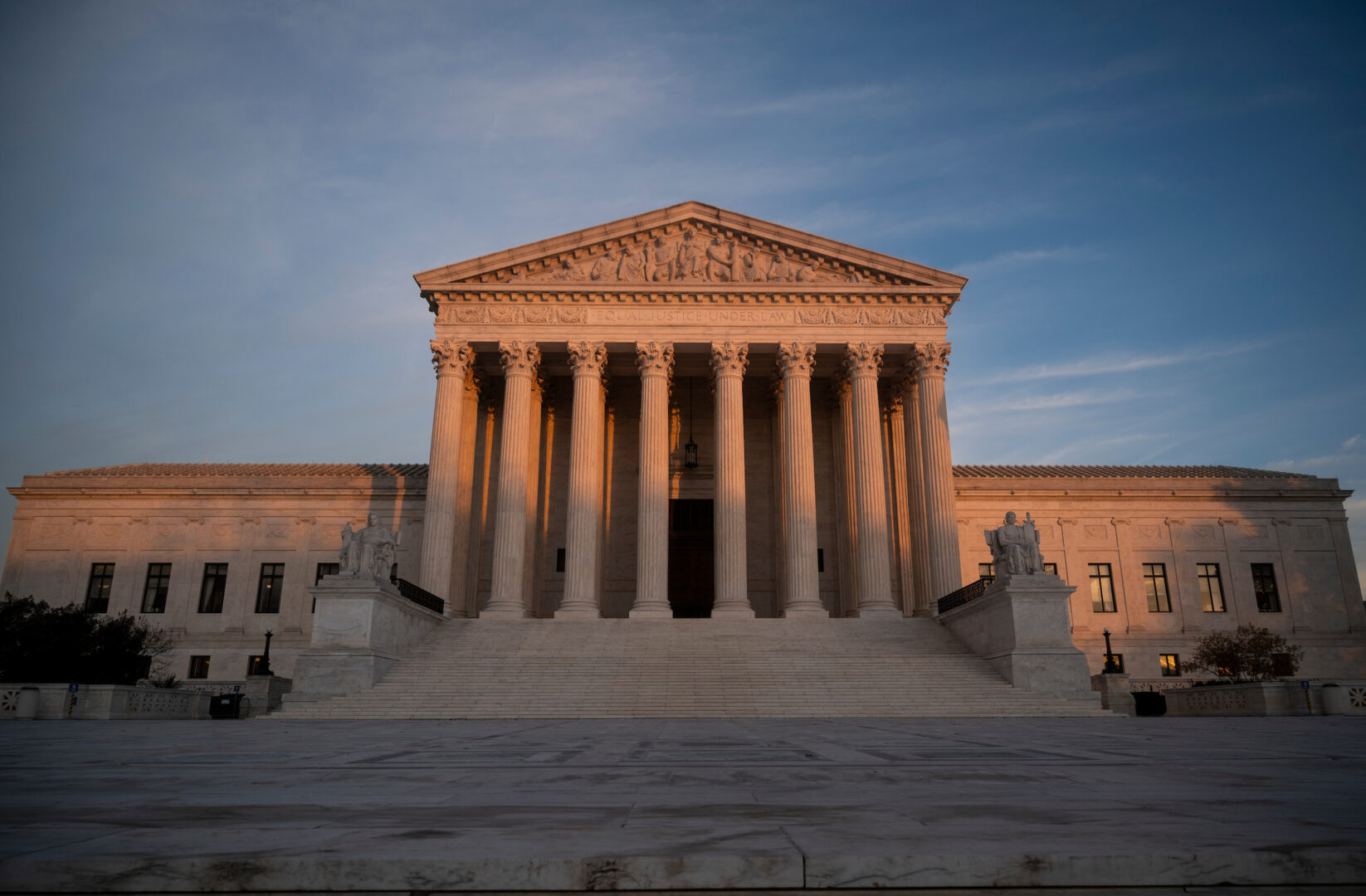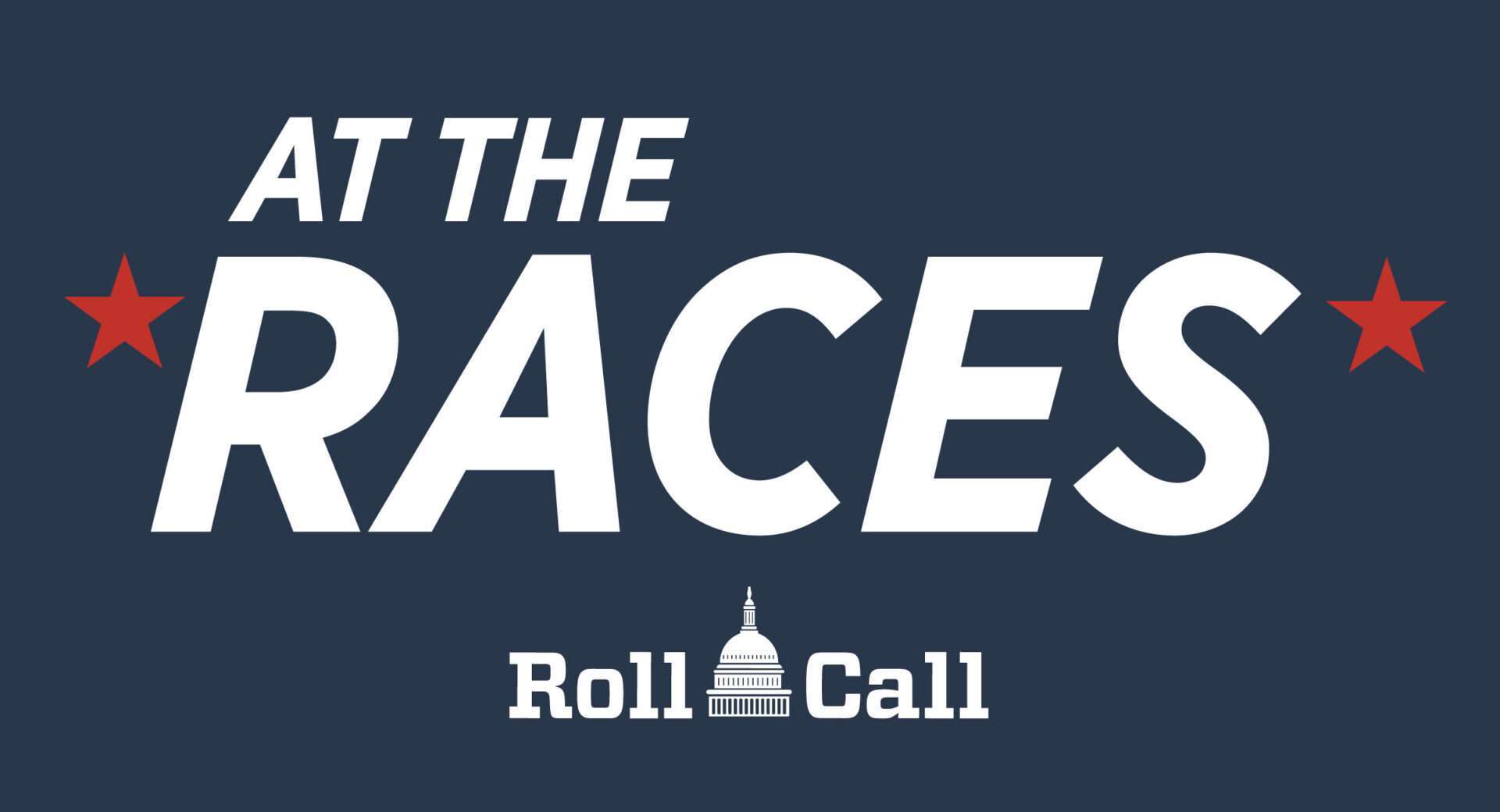How Kamala Harris could approach foreign conflicts as president
Harris appears unlikely to diverge significantly from Biden's approach to conflicts around the globe

Vice President Kamala Harris, if elected president in November, would inherit a slate of global conflicts, including Israel’s war with Hamas, Russia’s war in Ukraine and increasing military competition with China.
Harris was not a major voice on defense or national security during her years as a senator from California, but she did serve on the Intelligence and Homeland Security committees.
Harris is largely expected to continue many of President Joe Biden’s foreign policy initiatives, with a couple of possible differences. Here’s a look at how she might approach each region.
Israel
As president, Harris would be likely to approach Israel’s war with Hamas similarly to her predecessor, though her public remarks suggest she may be more sympathetic to the humanitarian plight of Palestinians in Gaza.
Harris was one of the first senior U.S. officials to demand a cease-fire and pressure Israel to do more to facilitate aid deliveries to Gaza. During a speech in Selma, Ala., in March, Harris went further than Biden in directly calling for hostilities to end.
“Given the immense scale of suffering in Gaza, there must be an immediate cease-fire for at least the next six weeks, which is what is currently on the table,” she said. “Let’s get a cease-fire. Let’s reunite the hostages with their families. And let’s provide immediate relief to the people of Gaza.”
At the time, her comments were some of the strongest made by a U.S. official urging Israel to reduce humanitarian suffering in Gaza, where nearly 40,000 people have died since the war’s onset.
“The Israeli government must do more to significantly increase the flow of aid,” she said. “No excuses. They must open new border crossings. They must not impose any unnecessary restrictions on the delivery of aid. They must ensure humanitarian personnel, sites, and convoys are not targeted. And they must work to restore basic services and promote order in Gaza so more food, water, and fuel can reach those in need.”
It’s also notable that Harris doesn’t have the decadeslong relationship with Israeli Prime Minister Benjamin Netanyahu that Biden has. She won’t attend his public address to Congress on Wednesday, although she reportedly has plans to meet with him later in the week.
Philip Gordon, Harris’ national security adviser, would likely play a major role in her administration’s foreign policy apparatus. Gordon previously served as a Middle East adviser to former President Barack Obama and helped negotiate the 2015 Iran nuclear deal.
As part of Harris’ staff, Gordon has participated in meetings with Israeli and Palestinian leaders. According to a White House readout of Gordon’s June trip to Israel and the West Bank, Gordon discussed “day-after planning efforts,” expressed U.S. support for Israel and emphasized the importance of improving humanitarian aid delivery.
Ukraine
It appears likely that Harris would continue the Biden administration’s approach toward Ukraine, should she become president.
Since Russia’s invasion of the country in February 2022, Harris has regularly played a role in the Biden administration’s pro-Ukraine messaging on the world stage.
Just this month, during a campaign event in Greensboro, N.C., Harris promoted Biden’s efforts to, as she put it, strengthen the NATO military alliance and stand up to Russian President Vladimir Putin.
Harris was the administration’s representative at each of the past three Munich Security Conferences, during which she met with Ukrainian President Volodymyr Zelenskyy.
At the 2023 conference, Harris repeated a refrain often used by Biden: “The United States will support Ukraine for as long as it takes.”
In February, following the death of Russian opposition leader Alexei Navalny in a Russian penal colony, Harris publicly said that Russia was responsible — a clear message to Putin.
A spokesperson for Sen. Richard J. Durbin of Illinois, the top Democrat in the Senate Ukraine Caucus and an appropriator, said in an email on Monday that Durbin, who has endorsed Harris, was confident in how she might approach the issue of war in Ukraine.
“The Biden-Harris administration proved its unwavering support to Ukraine and the growing NATO alliance over the last three and a half years. With Vice President Harris on the ticket, Senator Durbin is confident the U.S. will continue to repel Putin’s tyranny, have a strong relationship with Ukrainian President Zelenskyy, and continue to push for the necessary resources for Ukraine to win this war,” the spokesperson said.
It is also likely that Harris would inherit at least some of the government apparatus that existed during the Biden administration in the form of staff within government agencies like the Defense Department and the National Security Council.
Mykola Murskyj, the director of advocacy for Razom for Ukraine, a pro-Ukraine nonprofit, said his organization was hopeful that a potential Harris presidency would continue Biden’s support for Ukraine.
“Vice President Harris has stood by President Biden as he stood with Ukraine, and so we’re hopeful that she continues and indeed expands on his support,” Murskyj said.
China
Migration into the United States from Mexico was Harris’ top foreign policy mission under Biden, but the vice president’s multiple visits to Asia show she has prioritized that region as well.
Unsurprisingly, Harris’ comments about China in the last three-plus years reflect Biden’s policies, so it is not easy to discern what Harris might do differently on China if she is elected president.
Harris, like Biden, has emphasized the need to reduce Western economic reliance on China without strangling trade between the two nations or potentially hurting the U.S. economy through steep tariffs of the sort former President Donald Trump espouses. Harris also echoes Biden’s stress on engaging in competition with China but not conflict.
Like the president, Harris has called out China for what she has characterized as its domineering behavior toward its neighbors.
During a 2022 visit to the Philippines, for example, Harris criticized China for “intimidation and coercion” of Philippine vessels in the South China Sea.
In 2023, during a Southeast Asian summit, she called out China’s efforts to control other nations’ access to those waters as “bullying.”
U.S. policy toward Taiwan, an island nation that China considers a breakaway region, has been one of “strategic ambiguity,” signifying U.S. ability to defend Taiwan and to provide it with weapons but no explicit U.S. commitment to come to Taiwan’s defense if it is attacked.
Harris has reiterated that policy and underscored U.S. support for Taiwan’s security in the face of People’s Liberation Army military exercises near Taiwan.
“We have witnessed disturbing behavior in the East China Sea and in the South China Sea, and most recently, provocations across the Taiwan Strait,” Harris said during a visit to a U.S. Navy destroyer in Japan in 2022.
The administration will “continue to oppose any unilateral change to the status quo” in Taiwan, she added. “And we will continue to support Taiwan’s self-defense, consistent with our long-standing policy.”
As a senator, Harris helped write legislation aimed at protecting the rights of people in Hong Kong, which is a so-called special administrative region of China, and sanctioning Chinese persons who violate those rights. She was also outspoken in defending the besieged Uyghur population in northwestern China.





